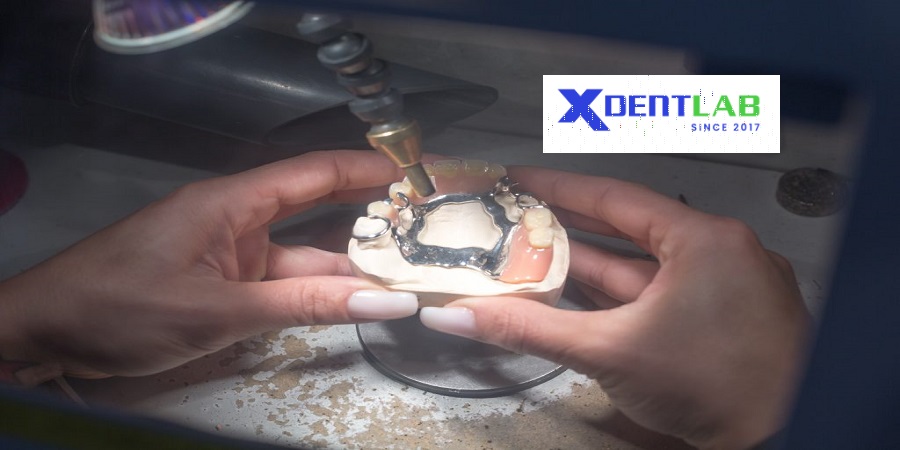
Vietnam dental laboratories dentallabvietnam.com The dental laboratory sector in Vietnam has undergone significant transformation over the past few decades, paralleling the country’s broader economic development and globalization. The origins of dental laboratories in Vietnam can be traced back to the late 20th century, largely developed within traditional settings and limited by the technological constraints of the era. Initially, the services offered were primarily basic, focusing on the manual fabrication of prosthetics with limited resources and training.
The Evolution of Dental Laboratories in Vietnam
As Vietnam opened its economy in the late 1980s, this marked a pivotal moment for the dental industry as well. The influx of foreign investment and the introduction of advanced dental technologies spurred a new era in which dental laboratories began to adopt modern techniques and equipment. This evolution facilitated the production of more precise and aesthetically pleasing dental solutions. Key milestones such as the establishment of training programs for dental technicians and partnerships with international dental manufacturers further enhanced the quality of services provided in Vietnam.
With globalization came increased awareness and demand for dental services, leading to an exponential growth in the number of dental laboratories across the country. This demand was fueled by both local and international clients seeking high-quality dental care and products. Consequently, dental laboratories in Vietnam began to specialize, offering a wide range of services from traditional dentures to advanced CAD/CAM technology for crowns and bridges.
Today, the regulatory framework surrounding dental laboratories is more structured and compliant with international standards, Vietnam dental laboratory ensuring that practices adhere to high-quality protocols. Regulatory bodies have emphasized the need for certification and continuous education for dental technicians, striving to foster an environment of professionalism and innovation. The combination of these developments has positioned Vietnamese dental laboratories as competitive players in the global dental market.
Current Trends and Innovations in Vietnamese Dental Labs
The landscape of dental laboratories in Vietnam is undergoing significant transformation, driven by the integration of advanced technologies and innovative practices. A notable trend is the adoption of Computer-Aided Design and Computer-Aided Manufacturing (CAD/CAM) systems. These systems facilitate seamless design and production processes, enabling dental technicians to create precise and customized dental restorations with improved efficiency. As a result, patients benefit from faster turnaround times and enhanced fit of dental prosthetics, which often leads to improved treatment outcomes.
Another groundbreaking development in Vietnamese dental labs is the use of 3D printing technology. This method has revolutionized the way dental appliances, such as crowns, bridges, and dentures, are manufactured. 3D printing allows for rapid prototyping and production, which reduces material waste and allows for highly complex designs that were previously unattainable. This innovation not only streamlines the production process but also ensures that patients receive products that match their anatomical requirements. Moreover, the cost-effectiveness of 3D printing makes advanced dental care more accessible to a wider population.
In conjunction with these technologies, the utilization of advanced materials is gaining traction within Vietnamese dental laboratories. Innovations in dental materials, such as zirconia and lithium disilicate, provide enhanced aesthetic and functional properties for prosthetics, leading to superior longevity and patient satisfaction. Furthermore, as the focus on quality control intensifies, dental labs are prioritizing lab accreditation and compliance with international standards. Such measures ensure that laboratories maintain high-quality output, further solidifying their reputation in the market.
In essence, the convergence of digital technologies, modern materials, and stringent quality practices in dental laboratories is setting a new standard for dental care in Vietnam. These innovations not only enhance the technical capabilities of dental technicians but also significantly improve the overall patient experience.
Related articles: Vietnam Dental Lab
The Future of Dental Laboratories in Vietnam
The dental laboratory industry in Vietnam is poised for substantial growth in the coming years, driven by advancements in technology and an increased focus on quality dental care. With a growing population and rising awareness of oral health, the demand for dental services is expected to continue to rise, creating further opportunities for dental laboratories. As market conditions evolve, laboratories must adapt to meet changing consumer needs while maintaining high standards of service and innovation.
One significant trend is the integration of artificial intelligence (AI) into lab processes. AI technologies have the potential to enhance efficiency and precision in various aspects of dental lab work, from digital impressions to the design and manufacturing of prosthetics. By leveraging AI-driven tools, laboratories can streamline workflows, reduce turnaround times, and improve the overall quality of dental products. This shift will not only increase productivity but also ensure that dental professionals can provide their patients with the best possible care.
Sustainable practices are becoming increasingly important in the dental field, Vietnam dental laboratories and laboratories in Vietnam are beginning to recognize the significance of implementing environmentally friendly processes. This may include utilizing eco-friendly materials and reducing waste through efficient production methods. By adopting sustainable practices, dental laboratories can contribute to the global effort for environmental conservation while appealing to conscientious consumers who prioritize sustainability.
International collaboration is another factor that could significantly impact the Vietnamese dental laboratory landscape. Partnerships with foreign companies may facilitate the transfer of knowledge and technology, allowing local labs to adopt advanced methodologies and improve overall efficiency. This collaborative approach can enhance the quality of dental services in Vietnam and foster innovation within the industry.
Finally, education and training for lab technicians will play a crucial role in supporting the future of dental laboratories in Vietnam. As the industry evolves, there will be an increasing need for skilled professionals proficient in both traditional and modern techniques. Implementing structured training programs and certifications will ensure that technicians are well-equipped to navigate the technological advancements and meet the rising expectations of dental practitioners and patients alike.
